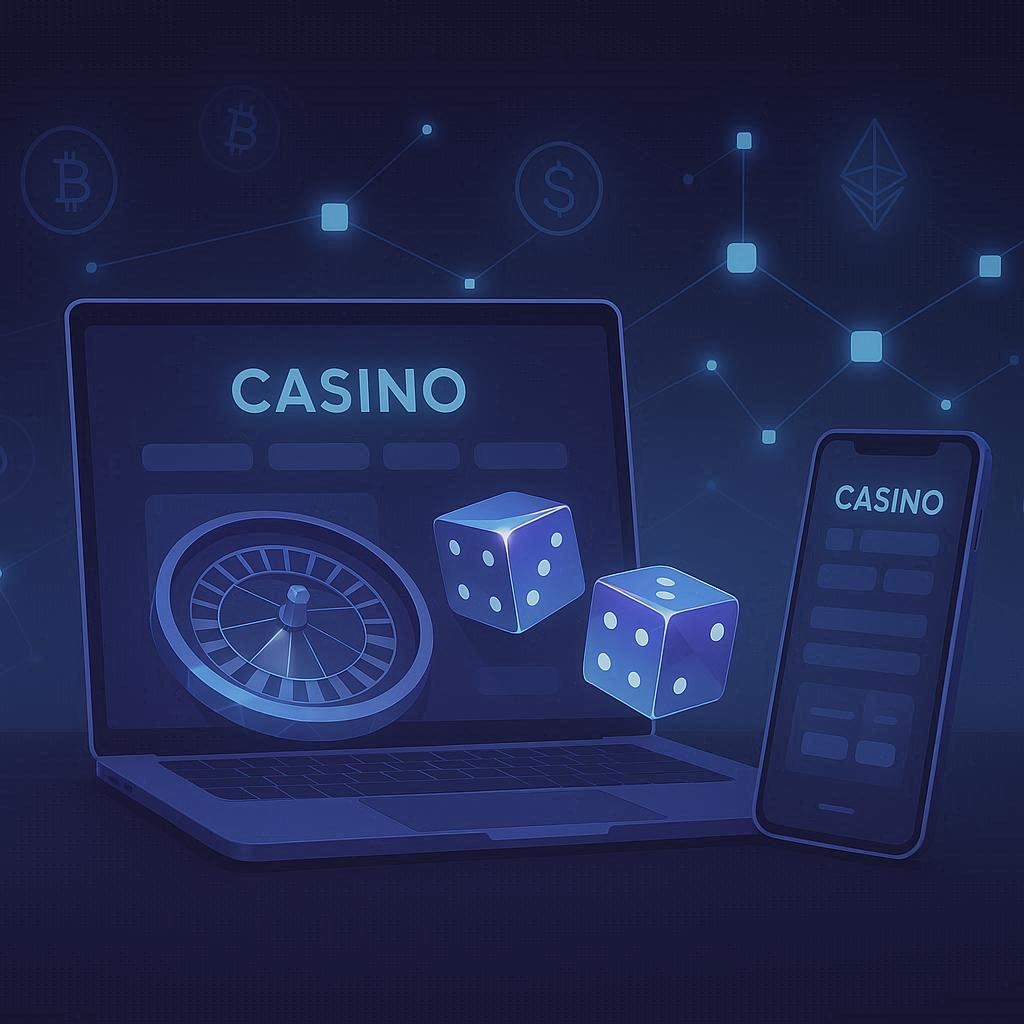The rapid rise of blockchain has created an entire sub-sector of online gambling: crypto casinos. They look and feel like traditional gambling sites, but use cryptocurrencies for deposits, withdrawals, and—in some cases—game logic itself. This guest post explains what they are, how they work, why people choose them, and the practical trade-offs to consider before you play. For a broad landscape of reputable options, see curated lists of top crypto casinos.
What makes a casino “crypto”?
At minimum, a crypto casino accepts digital assets (e.g., BTC, ETH, USDT) for payments. Some go further with:
- Provably fair games: Results you can verify with cryptographic hashes.
- On-chain play: Games whose core mechanics run on smart contracts.
- Hybrid models: Traditional game providers plus a crypto payment layer.
The core promise is speed, transparency, and global accessibility—without relying entirely on legacy banking rails.
Why players consider them
Speed & access. Crypto transfers can settle in minutes, and players in regions with limited payment options often find crypto more reliable than cards or wire transfers.
Privacy. While not anonymous, crypto can reduce the amount of personal data shared with payment processors.
Bonuses & variety. Competition is fierce, so you’ll see frequent promotions and a wide game catalog from slots to live dealer tables to crash games.
The real trade-offs
Volatility. Winnings (and losses) fluctuate with coin prices. Converting to stablecoins can reduce this, but it’s not foolproof.
Regulatory patchwork. Licensing standards vary widely. A license from a respected jurisdiction typically signals stronger oversight, but you must check whether play is legal in your region.
KYC randomness. Many sites market “light KYC,” but enhanced checks may appear at withdrawal—especially for larger amounts.
Self-custody risks. If you hold funds in your own wallet, you’re responsible for key security and avoiding phishing or fake sites.
How to evaluate a crypto casino
- Licensing & ownership transparency. Look for a current license, named operator, and a published physical address or corporate registry.
- Game integrity. Favor provably fair titles and established game studios. Read the rules and verify sample results when possible.
- Banking reality. Check supported networks (e.g., BTC, Lightning, Ethereum, Polygon), fee policies, and typical withdrawal times. Test a small cash-out first.
- Security posture. 2FA, withdrawal allowlists, session alerts, and cold-storage policies are good signs.
- Responsible gambling tools. Deposit limits, time-outs, and self-exclusion show the operator takes player welfare seriously.
- Reputation over time. Scan multiple independent forums and review hubs. Patterns—slow pays, bonus lock-ins, or poor dispute handling—matter more than single anecdotes.
Understanding “provably fair”
In many crypto games, each round’s outcome is generated from a combo of the server seed, a client seed (you can set it), and a nonce. The server publishes a hash of its seed beforehand; after some number of rounds, it reveals the seed so you can verify that outcomes weren’t changed midstream. This doesn’t make you more likely to win—it makes cheating harder to conceal.
Bankroll and risk management
- Size your bankroll so a losing streak won’t hurt essential expenses.
- Prefer stablecoins if you want to minimize price swings between sessions.
- Avoid chasing losses. Predetermine a stop-loss and a win goal.
- Document everything. Keep transaction IDs, chat transcripts, and bonus terms.
Legal and tax considerations
Crypto gambling can be legal, restricted, or outright prohibited depending on where you live. Even where it’s allowed, gambling wins may be taxable, and conversions between coins can trigger taxable events. If in doubt, speak with a professional familiar with both crypto and gaming regulations.
Bottom line
Crypto casinos marry fast, global payments with transparent game mechanics—but they also introduce volatility and regulatory complexity. Treat them as entertainment, not an investment vehicle. If you decide to explore the market, start with small stakes, test withdrawal speed early, and consult independent roundups such as lists of top crypto casinos to compare licensing, game fairness, and security practices.






